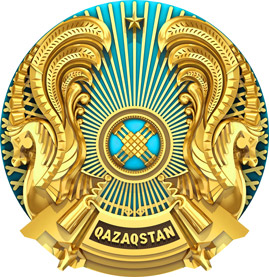Foreign Policy | International Organizations
UN Security Council

Kazakhstan served a two-year term on the United Nations Security Council in 2017-2018 and presided as the Council President in January 2018. Kazakhstan delivered notable results, and remained focused to advance international peace and security.
During the presidency in January 2018, Kazakhstan organized the first UNSC visit to Afghanistan since 2010. 11 Permanent Representatives visited Kabul affirming the priority to restore peace, stability and progress to the Afghan people.
Kazakhstan is committed to more effective multilateral diplomacy, and intends to bring to the UN Security Council:
- New vigor, fresh approaches and a proactive stance in mediation and confidence-building;
- Examples of leadership with a proven capacity for strategic relations;
- Principals of trust, transparency and tolerance;
- Honest and impartial brokerage with a balanced view and neutrality;
- Best practices and lessons-learned from inter-ethnic, inter-cultural, and inter-religious dialogue and understanding, tolerance, and non-discrimination.
Kazakhstan’s two successful leadership initiatives – the 2010 Organization for Security Cooperation in Europe (OSCE) and the 2011 Organization for Islamic Cooperation chairmanship – have shaped Kazakhstan’s current recognition as an international actor with strong diplomatic capabilities to address the key issues in global agenda, and generate positive change in global affairs.
Kazakhstan championed four security priorities as a non-permanent member of the UN Security Council from 2017-2019: energy security, nuclear disarmament and non-proliferation, water energy and food security.
Kazakhstan’s UNSC membership took place during a time of tensions between major powers in the council over crises in Middle East, war in Syria, the situation in North Korea, Ukraine and sanctions against Iran, among other global issues.
During its membership, Kazakhstan hosted a series of talks known as the Astana Process to seek a peaceful resolution to the conflict in Syria. The talks led to the creation of de-escalation zones provided by guarantor states and the cessation of fire to secure the release of refugees.
Kazakhstan also contributed to the council’s tabling of issues related to Afghanistan.
Kazakhstan convened a visit by council members to Kabul to help members learn about the situation on the ground and to meet the Afghan leadership, local business and community representatives. Following the mission, Central Asian foreign ministers participated in the high-level debate on “Building Regional Partnership in Afghanistan and Central Asia, to Link Security and Development.” The ministers discussed regional development and addressing the repercussions of the situation in Afghanistan over Central Asia’s security and social stability.
Kazakhstan also focused during its UNCS membership on countering international terrorism and has initiated and secured the signing of the Code of Conduct to achieve a terrorism-free world by 2045. The code was drafted by Kazakhstan on President Nazarbayev’s initiative and has now been signed by 80 countries.
Also while on the council, Kazakhstan was a president of ISIL/Da’esh, Al-Qaida and the Taliban Sanctions Committees of the council.


